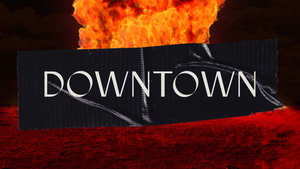Downtown Music has been sued for breach of contract and fraudulent inducement by Blast Off Media, a company that provides music for YouTube creators, after a new distribution deal between the two companies fell apart almost immediately earlier this year.
In a lawsuit high on drama, Blast Off says this legal battle centres on the “calculated destruction” of its business by Downtown, which “manufactured a pretext” to almost immediately terminate a distribution deal it signed up to in August after getting “buyer’s remorse”.
Blast Off’s lawyers also theorise that the politics surrounding Universal Music’s controversial acquisition of Downtown contributed to the sudden and rapid termination of their client’s deal.
And, not only that, but that “this case exemplifies precisely the type of conduct that opponents of the UMG/Downtown acquisition warned about: a major-label-owned entity destroying an independent operator’s business when it became inconvenient, using pretextual compliance concerns as cover for bad faith economic motivations”.
Because - Blast Off is very keen to stress - the impact of Downtown’s conduct is severe. It has “destroyed a YouTube music catalogue valued between $200 and $300 million” and “poisoned” Blast Off’s legitimate business by making it appear dodgy. And not only that, it has “displaced Blast Off’s network of over 20,000 YouTube content creators”.
The dispute really centres on whether or not concerns that Blast Off’s music was being used in videos that breached YouTube rules - and Downtown’s response to those concerns - were justified.
Downtown, which has responded to the lawsuit by hitting out at its former client’s “parasitic” business model, insists it acted responsibly in quickly ending its relationship with Blast Off once those concerns about YouTube rule breaking became apparent.
But Blast Off argues that Downtown used minor concerns relating to a small number of videos to get out of its contractual commitments to the smaller music company.
Blast Off has a catalogue of about 800 tracks that YouTube creators are encouraged to use in videos posted to YouTube Shorts. Where tracks are used, Blast Off claims the music royalties due on those videos, and then commits to share that money with each video’s creator.
The August deal saw Downtown take on the job of managing Blast Off’s relationship with YouTube and its content management and royalty claiming systems.
Blast Off alleges that, when trying to win its business, Downtown said it had “superior relationships” with YouTube and could “manage any compliance issues that might arise”. These brags “were quickly shown to have been false” once Downtown started managing its catalogue on YouTube, it now claims.
“Barely one month” after the deal was signed, Downtown terminated the agreement and asked for its advance back. It also delisted Blast Off’s tracks on YouTube’s content management platform, “immediately rendering the entire catalogue unusable and thus valueless for its intended purpose”.
This was because of issues with videos posted to YouTube containing Blast Off’s music. Or, in the words of a Downtown spokesperson who spoke to Billboard, the “flagrant violation of YouTube’s terms of service” by the creators who uploaded those videos.
That included videos that repurposed other creators’ video content without permission, and in some cases inserted the music so that it was inaudible in the finished video, meaning claiming music royalties on that content would be “in violation of YouTube’s content policy”.
Blast Off concedes that there were some issues with videos containing its music, but insists these related to a tiny number of uploads.
It claims that Downtown has only identified “two instances involving only two tracks” where parties “unaffiliated with Blast Off” uploaded videos that violated YouTube’s policies. And in relation to those issues, it has “failed to identify any wrongdoing by Blast Off” and has “ignored” its “extensive good-faith compliance efforts”.
Blast Off argues that Downtown used the small number of issues around videos using its music to get out of a deal it regretted signing. It says that its “high growth rate” in the first month of the deal made Downtown nervous that its “operational burdens were increasing faster than expected”.
And in that context, the commissions it was charging were not as advantageous as it first thought. Basically Downtown had “come to view the deal as commercially unfavorable - in essence, they had buyer’s remorse”.
And then there’s Universal’s ongoing bid to buy Downtown, which is currently being reviewed by European Union regulators.
Seeking to connect its Downtown dispute to all the controversies around the Universal takeover, Blast Off says it suspects that “Downtown decided to divest itself of Blast Off out of concerns that the agreement could somehow complicate the merger”.
“For example”, it continues, “Downtown’s entire business model depends on maintaining” access to YouTube’s content management systems, and losing that access “would render Downtown worthless to Universal”.
Blast Off’s “scale and 30% monthly growth”, it goes on, “created escalating risk that any perceived YouTube policy issues - whether legitimate or not - could trigger CMS suspension and, in turn, sour Universal’s views of Downtown”.
That does seem like a bit of a stretch. Downtown’s relationship with YouTube is clearly important, but its “entire business model” doesn’t depend on it. And losing access to YouTube’s CMS would be just as problematic for Downtown as an independent company as a future Universal division. But still, if you’re suing Downtown at the moment, I guess you’re going to mention the Universal deal.
In its Billboard statement, Downtown is disparaging of both Blast Off and its lawsuit, insisting that its decision to quickly terminate its contract with the YouTube music company is a demonstration of its commitment to the fight against streaming fraud.
“Downtown is proud to uphold the highest trust and safety standards on behalf of our clients, our partners and the broader industry”, it says. “This includes our role as one of the founders of the Music Fights Fraud Alliance, which was launched to help combat content abuse, including the parasitic exploitation exemplified by Blast Off Media”.

